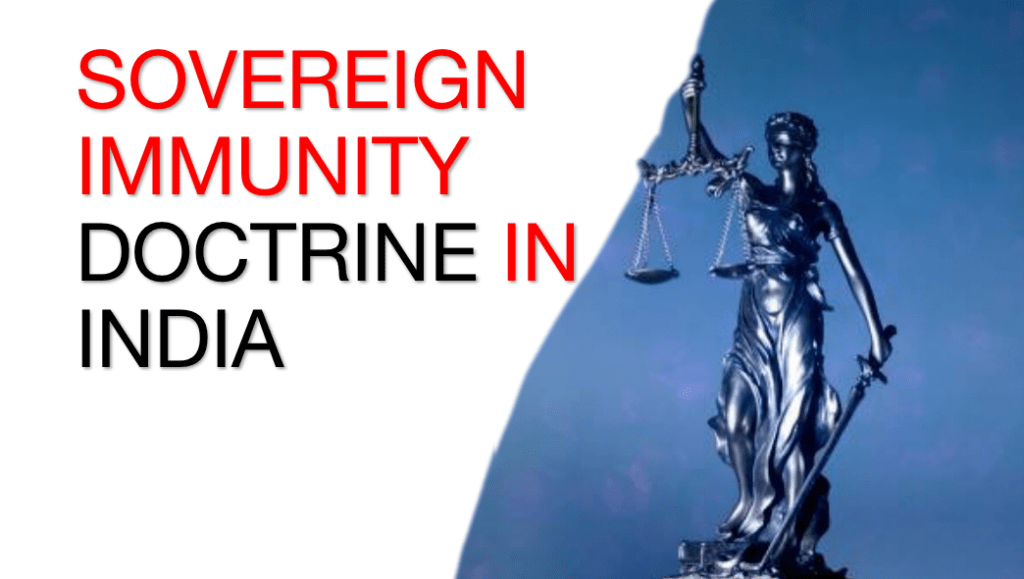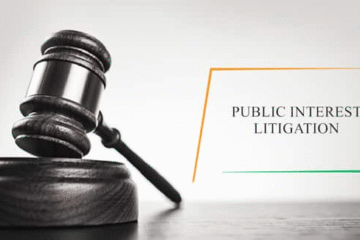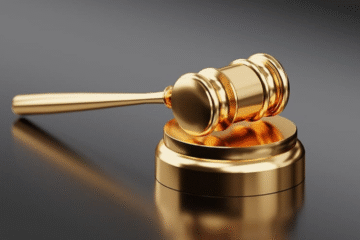SOVEREIGN IMMUNITY DOCTRINE IN INDIA

This Article is written by ABHINAV DUBEY 2ND ,Year Student of ILS LAW COLLEGE Intern Under Legal Vidhiya
ABSTRACT:
There are numerous nations all over the world that have endorsed the notion of sovereign immunity as a legal precept. It protects sovereign states and governments from unjustified civil and criminal claims. The underlying tenet of the principle is that since the government is the ultimate authority and acts in the best interests of the state and the populace, it is immune from legal accountability. The concept of sovereign immunity has broad ramifications and has an impact on many facets of government and public life, including domestic governance and international affairs. Its use varies significantly between nations and legal systems, and its boundaries and extent are still up for debate and legal interpretation. This article will give a summary of doctrine of sovereign immunity in India, its historical development, constitutional provisions and case laws related to it and its application in different countries.
INTRODUCTION:
The doctrine of sovereign immunity is a legal principle that states that a sovereign state or government cannot be sued without its consent. In other words, the government has immunity from civil and criminal lawsuits, and individuals cannot sue the government or its agents without permission from the government itself. The concept of sovereign immunity is founded on the notion that the state is the supreme authority and cannot be held accountable for its decisions since it is acting in the best interests of the nation and the general populace. The idea of sovereign immunity is crucial to understanding constitutional law and forms the basis of how the government interacts with its constituents. Its application differs between nations and legal systems, and its boundaries and scope are still being debated and interpreted in the law.
THE HISTORY OF INDIAS DOCTRINE OF SOVEREIGN IMMUNITY:
The common law brought the defense of sovereign immunity to India. According to common law in the United Kingdom, the King cannot commit a wrong, hence no legal action may be brought against the King or his representatives for any wrongdoing. With the entrance of the British, the idea of sovereign immunity was ingrained in Indian law. As the British colonized India, they brought new concepts, ideologies, cultures, and laws with them. The doctrine of sovereign immunity was one of these several innovations to our country. From the middle of the nineteenth century until recently, this idea ruled Indian courts. There will undoubtedly be irritation and requests for a review when a legitimate claim for damages is made to the courts and is rejected by an old concept that seems to have no application. The Indian courts kept limiting the scope of sovereign powers so that the victims would receive compensation to prevent legitimate claims from being rejected. The Law Commission of India also suggested abolishing this outmoded theory in its very first report. However, the draught bill to abolish this theory was never passed for a variety of reasons, therefore it was left to the courts to determine if this doctrine was still compatible with the law.
Pre-independence Judicial Decisions
P & O Steam Navigation Company v. Secretary of State
The case provided the first evidence of the doctrine’s applicability in India. The case’s facts involved a servant of the plaintiff’s company travelling down a Calcutta roadway in a carriage pulled by a pair of the plaintiff’s horses. He was involved in an accident that was brought on by government employees’ carelessness. The plaintiff sued the Secretary of State for India for damages related to the accident-related loss.
The court determined that because the irresponsible act was not carried out in the performance of a sovereign role, the Secretary of State was responsible for the losses brought about by the negligence of government employees. The court made a distinction between acts carried out while in the “exercise of sovereign authority” and those carried out while in the “exercise of non-sovereign function,” that is, when carrying out undertakings that could be carried out by private individuals without such power. Only when non-sovereign functions occur might there be liability.
Secretary of State v. Hari Bhanji
While salt was being transported between the ports of Bombay and Madras, the rate of duty on salt increased, and the merchant was required to make up the difference at the final port of destination. He made a payment against his will and filed a lawsuit to get his money back. The fact that an act is carried out in the exercise of a sovereign function and is not one that could possibly be carried out by a private individual does not disqualify it from being justified, according to the court, which has denied the existence of any distinction between sovereign and non-sovereign functions. However, it should be noted that the Madras verdict adds that the government may not be accountable for activities related to public safety (even though they are not acts of State)
Nobin Chunder Dey v. Secretary of State
The plaintiff claimed damages after he was wrongfully denied a license to sell certain excisable liquors and drugs, which led to the closure of his business. The Calcutta High Court rejected this claim on the grounds that granting or denying a license is a sovereign function that is exempt from the State’s tortious liability. Since then, other legal rulings have been based on the distinction between the State’s sovereign and non-sovereign functions.
Post-independence Judicial Decisions
State of Rajasthan v. Vidyawati
The claim for damages in that instance was made by the heirs of a person who passed away in an accident brought on by the carelessness of the driver of a jeep that the government was maintaining for the Collector of Udaipur’s official usage while it was being returned from the shop after repairs. The Rajasthan High Court held that the State was responsible because it is not in a better position than the private sector in providing vehicles and employing drivers for its civil service. The court in this instance rejected the State’s claim of immunity and determined that the State was just like any other employer responsible for the driver’s tortious behavior.
Kasturi Lal v. State of U.P
In one instance, a partner of the Amritsar-based jewelers Kasturika Ralia Ram Jain went to Meerut to sell gold and silver but was detained by police on suspicion of having stolen property. The following day, he was freed, but the property that was retrieved from his possession could not be fully restored to him because the Head Constable in charge of the Makhana had stolen the gold and escaped to Pakistan while the silver was returned. The company sued the State of UP for the ornaments’ restitution or, in the alternative, compensation. The Apex Court ruled that even if the employees’ negligence occurred while they were working for the state, the claim against it could not stand since the employment was within a category that qualified for the special status of a sovereign power.
The Apex Court adopted a different stance, which caused confusion throughout the situation. Following the guidelines established in the P.S.O. Steam Navigation decision, the Supreme Court in this judgement distinguished between sovereign and non-sovereign activities of the state and found that misuse of police power is a sovereign act, hence the State is not accountable.
Rudal Shah v. State of Bihar
Rudal Shah, the petitioner, spent more than 14 years in an unjust prison detention. In his petition for habeas corpus, he requested among other things that the court grant him immediate release and pay for his rehabilitation, medical expenses, and legal detention costs. In the writ petition itself, the Supreme Court granted damages for the first time.
Bhim Singh v. State of Rajasthan
The Rudal Shah principle was later expanded to embrace instances of wrongful confinement. The Apex court granted Rs. 50,000 as compensation for illegal arrest and detention in a suit under Article 32.
CONSTITUTIONAL PROVSIONS:
As can be seen from the aforementioned instances, Indian courts upheld the idea of sovereign immunity from the middle of the nineteenth century until very recently. When sincere claims for damages were brought before the courts and were rejected by an antiquated concept that didn’t seem to have any application, there was frequent irritation and calls for revision. Indian courts continued to limit the scope of sovereign powers so that true victims would obtain just compensation.
The constitutional text has never fully grounded the doctrine of sovereign immunity. So, the concepts of sovereign immunity are not specifically expressed but rather must be found in numerous provisions of the constitution and other legislative enactments.
Article 300: Liability of State
The Article 300 of the Constitution originated from Section 176 of the Government of India Act, 1935. This could be traced back from the Section 32 of the Government of India Act, 1915, the genesis of which can be found in section 65 of the Government of India Act, 1858. Section 65 of the Government of India Act, 1858 provided “All persons and bodies politic shall and may have and take the same suits, for India as they could have done against the said Company.”
It will thus be seen that by the chain of enactment beginning with the Act of 1858, the Government of India and Government of each State are in line of succession of the East India Company. In other words, the liability of the Government is the same as that of the East India Company before, 1858.
Article 300 Read as:
(1) The Government of India may sue or be sued by the name of the Union of India and the Government of a State may sue or be sued by the name of the State any may, subject to any provision which may be made by Act of Parliament or of the Legislature of such State enacted by virtue of powers conferred by this Constitution, sue or be sued in relation to their respective affairs in the like cases as the Dominion of India and the corresponding provinces or the corresponding Indian States might have sued or been sued if this Constitution had not been enacted.
(2) If at the commencement of this Constitution –
(a) any legal proceedings are pending to which the Dominion of India is party, the Union of India shall be deemed to be substituted for the Dominion in those proceedings; and
(b) any legal proceedings are pending to which a Province or an Indian State is a party, the corresponding State shall be deemed to be substituted for the province or the Indian State in those proceedings.
An overview of Article 300 provides that the first part of the Article relates to the way in which suits and proceedings by or against Government may be instituted. It enacts that a State may sue and be sued by the name of the Union of India, a State may sue and be sued by the name of the State.
The Second part provides, inter alia, that the Union of India or a State may sue or be sued if relation to its affairs in cases on the same line as that of Dominion of India or a corresponding Indian State as the case may be, might have sued or been sued of the Constitution had not been enacted. The Third part provides that it would be competent for the Parliament or the legislature of State to make appropriate provisions in regard to the topic covered by Article 300(1).
Role of Article 226 and Article 32
After 1977, a number of cases of wrongful incarceration and custodial death were brought before the Supreme Court through writ petitions filed in accordance with article 32 of the Constitution or appeals filed in opposition to High Court judgements filed in accordance with article 226. Compensation was given to the injured party (or to his legal representatives), regardless of whether the arrest was deemed to be illegal or whether it was determined that the inmate’s death occurred as a result of abuse or gross negligence on the part of the police personnel. In the case of Nilabati Behra V. State of Orissa a significant decision regarding these constitutional clauses was made.
The court awarded compensation to the petitioner for the death of her son in police custody and held that a claim in public law for compensation for contravention of human rights and fundamental freedoms, the protection remedy for enforcement and protection of such rights and such a claim based on strict liability made by resorting to constitutional remedy provided for the enforcement of fundamental right is distinct from and in addition to the remedy in private law damages for tort. The court expressly held that principle of sovereign immunity does not apply to the public law remedies under Article 32 and Article 226 for the enforcement of fundamental rights.
Article 21 in Sovereign Immunity
According to article 21 of the constitution, negligence that endangers or denies life cannot be covered by the sovereign immunity defense. This was determined by the High Court of Andhra Pradesh’s decision in Challa Ramakrishna Reddy v. State of AP, which was later upheld by the Supreme Court in State of AP v. Challa Ramakrishna Reddy.
Facts: The petitioner and his father were detained in a jail, when one day rivals attacked them with bombs, killing the father and injuring the petitioner. Despite the victims’ prior awareness of the attack and their communication of their fear to the authorities, they received no additional security. The number of police officers assigned to guard the jail, on the other hand, was significantly reduced. Thus, the petitioner launched a lawsuit against the government on the basis of carelessness.
The trial court concluded that the authorities were careless in their supervision of the jail and that this carelessness was to blame for the deceased’s death. The lawsuit, however, was rejected on the grounds that the deceased’s arrest and incarceration were carried out as part of the State’s sovereign powers.
The High Court considered Article 21 of the Constitution and came to the conclusion that as a person’s right to life is a fundamental right, it cannot be taken away from him or her unless done so in accordance with the legal process. It was determined that the claim for violation of fundamental rights could not be violated by statutory immunities because the negligence that caused the incident was both illegal and in violation of Article 21 and because the statutory concept of sovereign immunity could not supersede the constitutional provisions.
The Supreme Court denied the State’s appeal after receiving it, concluding that “The maxim that the King can do no wrong or that the Crown is not answerable in tort has no place in Indian jurisprudence where the power vests, not in the Crown, but in the people who elect their representatives to run the Government, which has to act in accordance with the provisions of the Constitution and would be answerable to the people for any violation thereof.”
This case demonstrates that sovereign immunity is not applicable when a basic right is violated, therefore limiting its use in the field of fundamental rights.
APPLICATION IN DIFFERENT COUNTRIES:
UNITED STATES:
In the United States, The Federal Tort Claims Act permits citizens to sue the federal government for wrongs done by government employees, limits sovereign immunity in the United States. Additionally, states have their own legislation that restricts sovereign immunity. The concept of sovereign immunity, however, is nevertheless applicable in specific circumstances.
UNITED KINGDOM:
In the United Kingdom, the Crown is immune from being sued in domestic courts due to its sovereign immunity. However, the Crown may be sued in specific situations, such as for negligence or breach of contract.
CANADA:
In Canada, the sovereign immunity enjoyed by the federal and provincial governments is constrained by law. For instance, the Crown Liability and Proceedings Act permits people to sue the federal government under specific conditions.
AUSTRALIA:
In Australia, State and territorial administrations, as well as the Commonwealth government, all have sovereign immunity. The Crown Proceedings Act and different state and territory laws, however, place restrictions on this immunity.
GERMANY:
In Germany, Both the federal government and state governments are subject to the sovereign immunity theory. There are, however, some exceptions to this norm, such as when the government does anything against the law or when it infringes on someone’s rights.
FRANCE:
In France, Sovereign immunity applies to the government, although it is not unqualified. According to the State Liability Act, citizens may file a lawsuit against the government for things like property damage brought on by a public works project.
JAPAN:
In Japan, Although the government has sovereign immunity, this immunity is not unqualified. By using the State Redress Act, people can demand financial compensation from the government for harm done by public servants or for rights abuses.
In general, the concept of sovereign immunity differs from nation to nation, with some giving more constrained immunity than others. Yet, the premise that the government should not be held to the same legal obligations as private individuals and companies forms the basis of the principle of sovereign immunity.
CONCLUSION:
In a republican country that upholds the rights to life, liberty, and the rule of law, the idea of sovereign immunity is increasingly coming to light as an archaic and outmoded defense. Given that all people gain from the State’s use of its sovereign rights, there appears to be no good reason why it shouldn’t compensate the victims of those activities, and it would be extremely unfair to place the burden on a select few. Despite the original grounds for sovereign immunity, they no longer hold true in the modern world. sovereign defense against legal action. perpetuates injustice by preventing compensation for tortious behavior only because of the victim’s status. The fundamental principle of tort law that liability follows negligence, and that people and corporations are liable for the negligence of their agents and employees who are acting in the course of their employment is directly contradicted by sovereign immunity. We come to the conclusion that the State’s sovereign immunity from tort liability is no longer necessary.
In addition, even though we do away with the State’s sovereign immunity from tort claims, I come to the conclusion that doing away with it should be prospective so the Legislature can implement it and make plans ahead of time by obtaining liability insurance or by setting up the funds required for self-insurance.




0 Comments